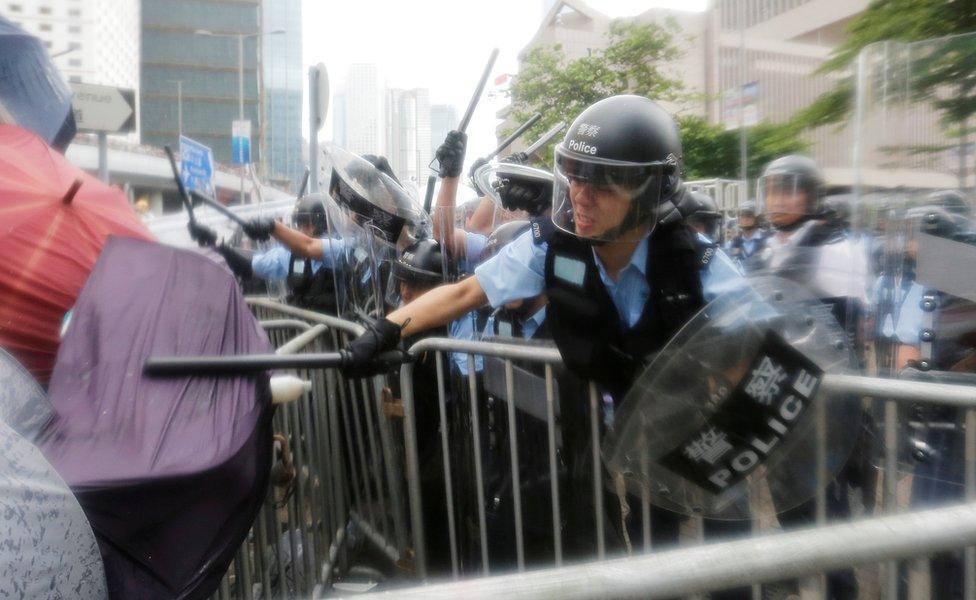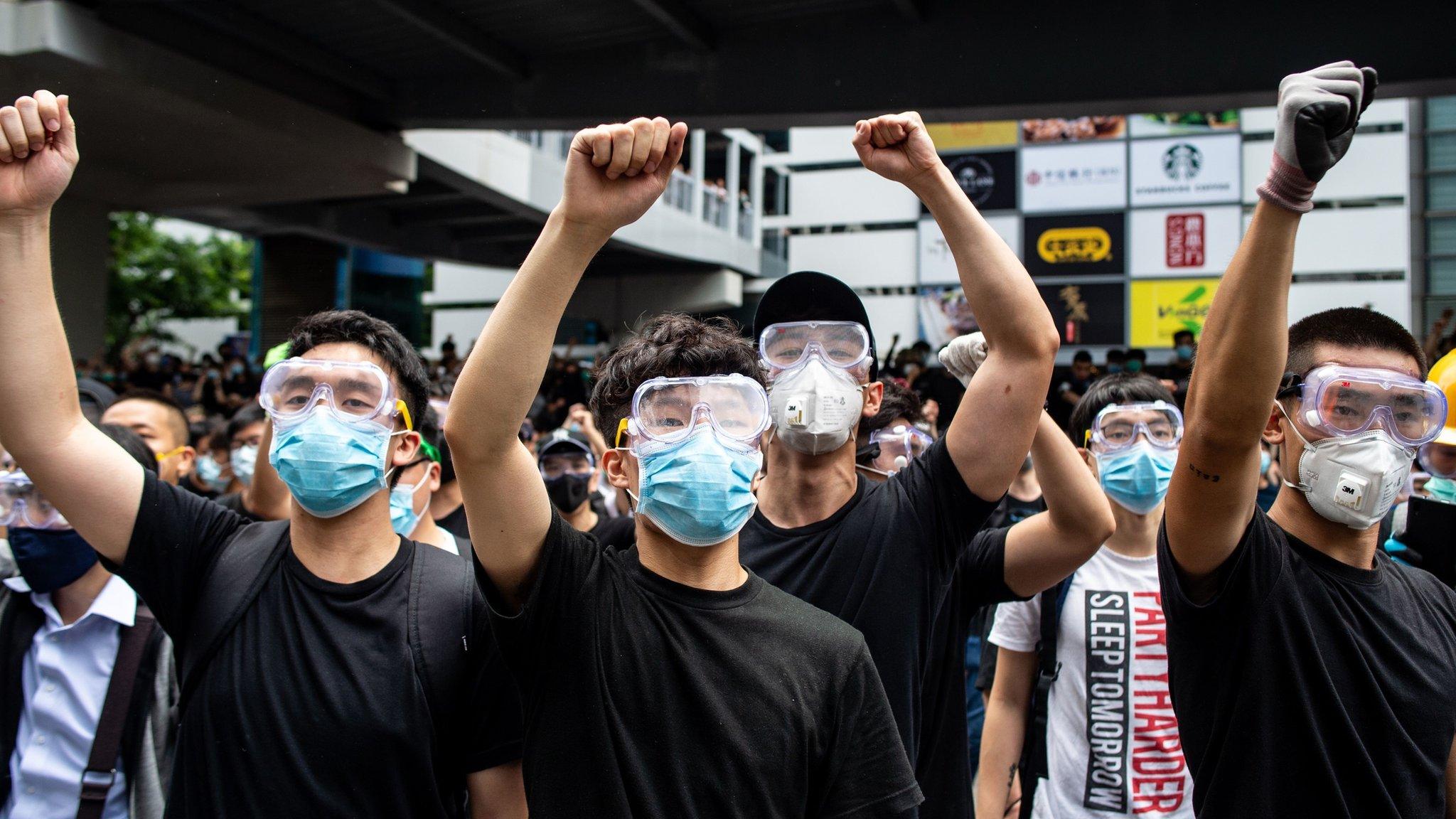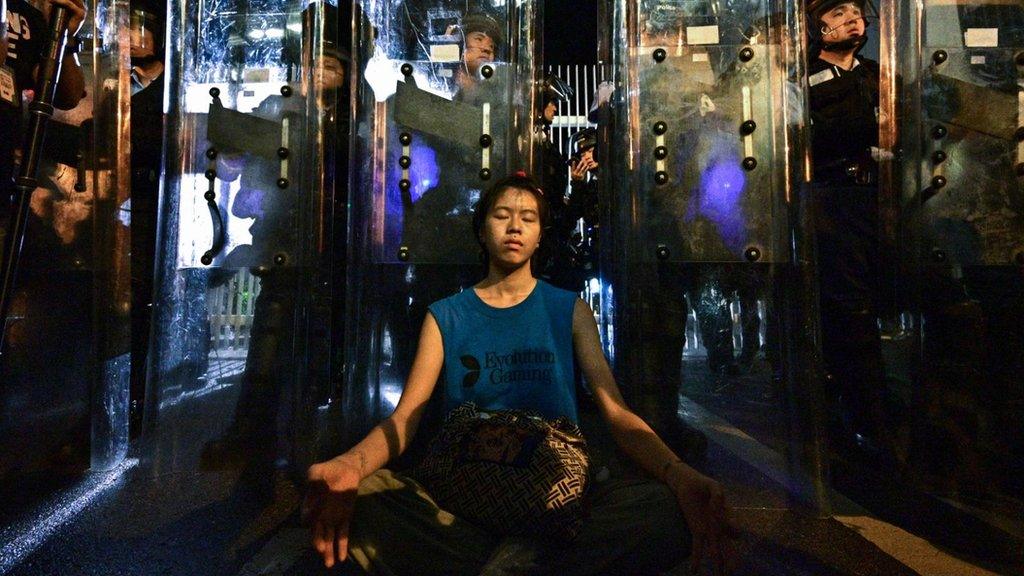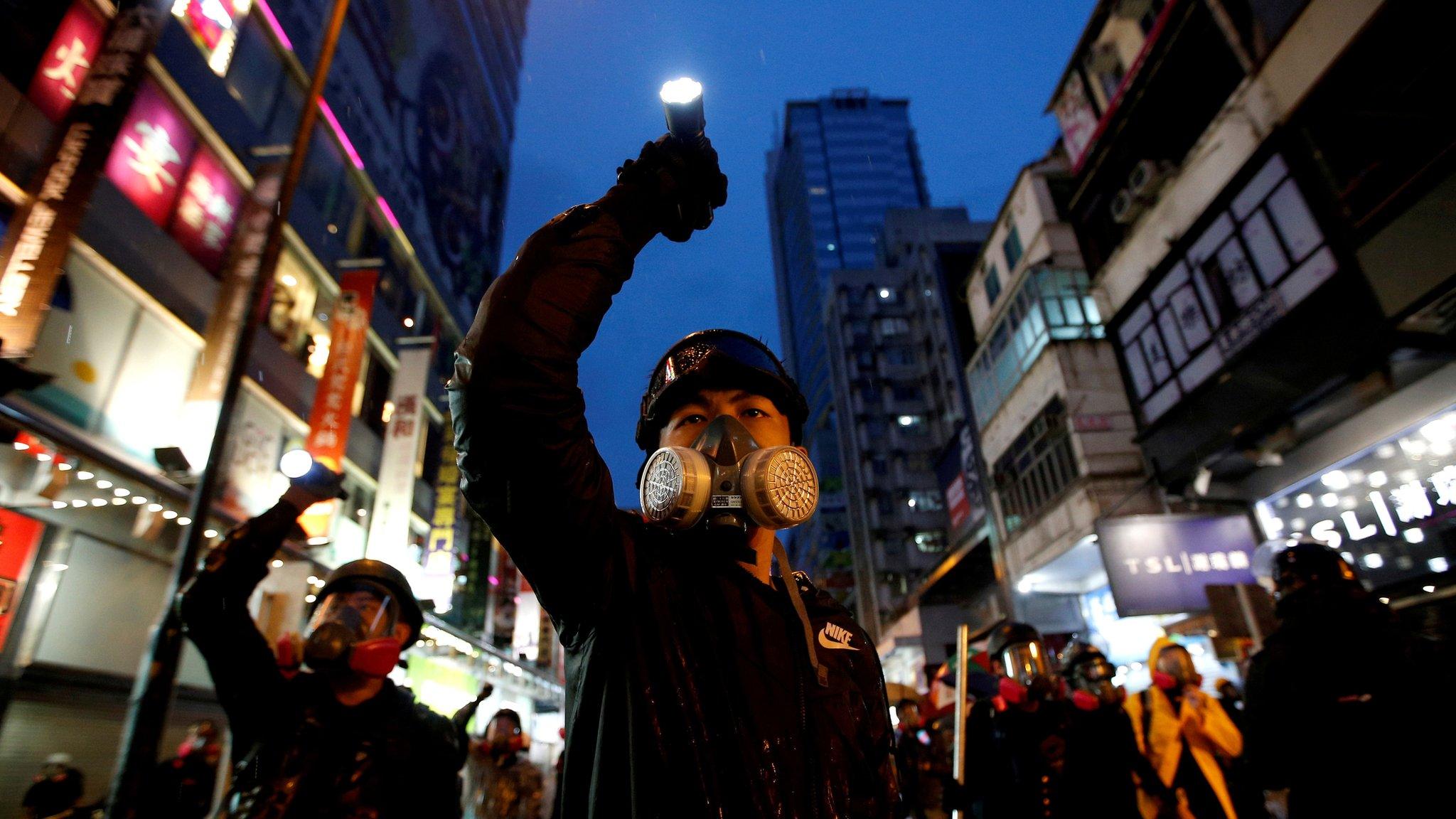Hong Kong extradition bill: Police brutality inquiry ruled out
- Published

Clashes broke out between police and protesters on 12 June
Hong Kong Justice Secretary Teresa Cheng has rejected calls to investigate police brutality during ongoing mass protests in the Chinese territory.
However, she did apologise for the Hong Kong government's handling of the extradition bill which is at the root of the unrest.
Police vowed a "stringent" response to the latest protest, when their headquarters was besieged for 15 hours.
Demonstrators only melted away in the early hours of Saturday.
Anger is widespread over the suspended bill, which would make it easier to extradite suspects to mainland China.
Protesters want the bill to be withdrawn altogether, and everyone detained over the demonstrations to be freed.
Hong Kong has been part of China since 1997 under the "one country, two systems" principle, which allows it freedoms not seen on the mainland, including judicial independence.
How are the authorities handling the unrest?
Ms Cheng ruled out an inquiry into the police's use of force, despite protests by human rights groups over the use of rubber bullets and tear gas.
Thousands of Hong Kong protesters surround police headquarters
At least 72 people aged between 15 and 66 have been injured in the clashes, including two men who are in a critical condition and 21 police officers.

Getting only stronger?
Nick Beake, BBC News, Hong Kong
The final protesters may have slipped away in the early hours, but they've left their mark.
The eggs they pelted are still smeared on the windows of Police HQ, and plainclothes officers are using bin bags and tape to try to cover the graffiti sprayed on the walls.
Two words daubed next to the police logo reveal what's been driving this anger: withdraw and release. Withdraw this extradition bill and release those detained during the previous week of protest.
The Hong Kong justice secretary's rejection of an investigation into claims of police brutality during the disturbances is likely to invigorate further this protest movement, which claims it is only getting stronger.

The justice secretary also vowed to press charges against those involved in the violence.
However, writing in her blog, she added: "We promise to adopt a most sincere and humble attitude to accept criticisms and make improvements in serving the public."
What do the protesters do now?
On Friday they adopted a new, mobile strategy to disrupt government operations which inspired by a maxim of the late martial arts icon Bruce Lee, "Be water, my friend", external.
How Hong Kong demonstrators organised protests
Their four basic demands are:
the complete withdrawal of the extradition bill
the revocation of the term "riot" to describe the 12 June protests
the release of all detained activists
the investigation of police violence
Eric, a 22-year-old office worker and protester, told AFP news agency he would wait to see what directions came through on social media in the coming days.
"There are many camps and each person has their own way of resistance," he said.
- Published17 June 2019

- Published15 June 2019

- Published21 May 2020

- Published29 June 2017